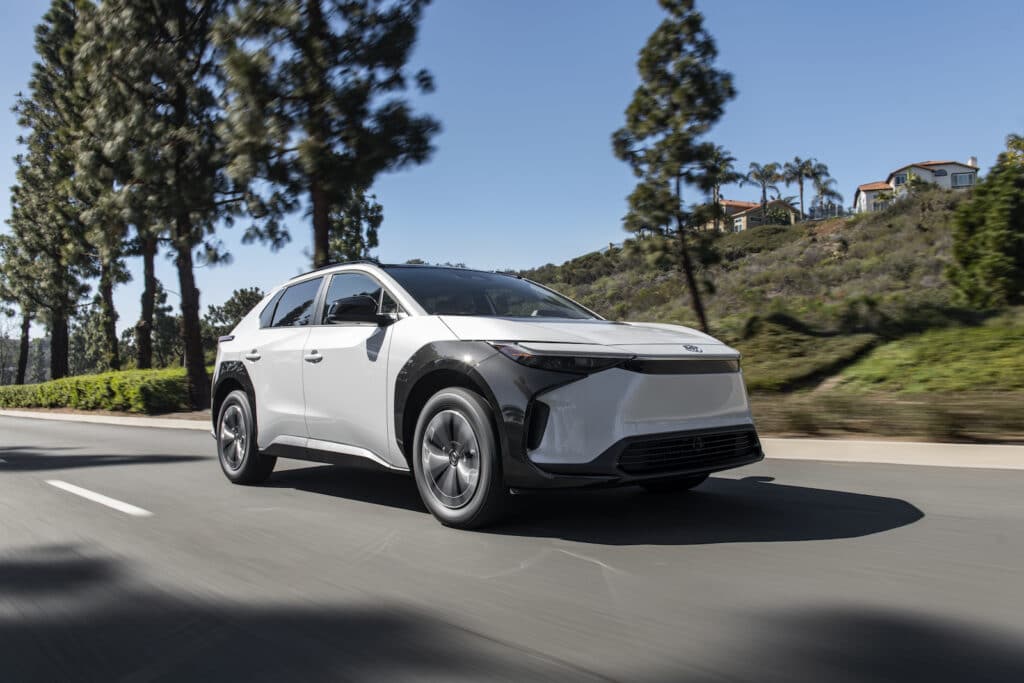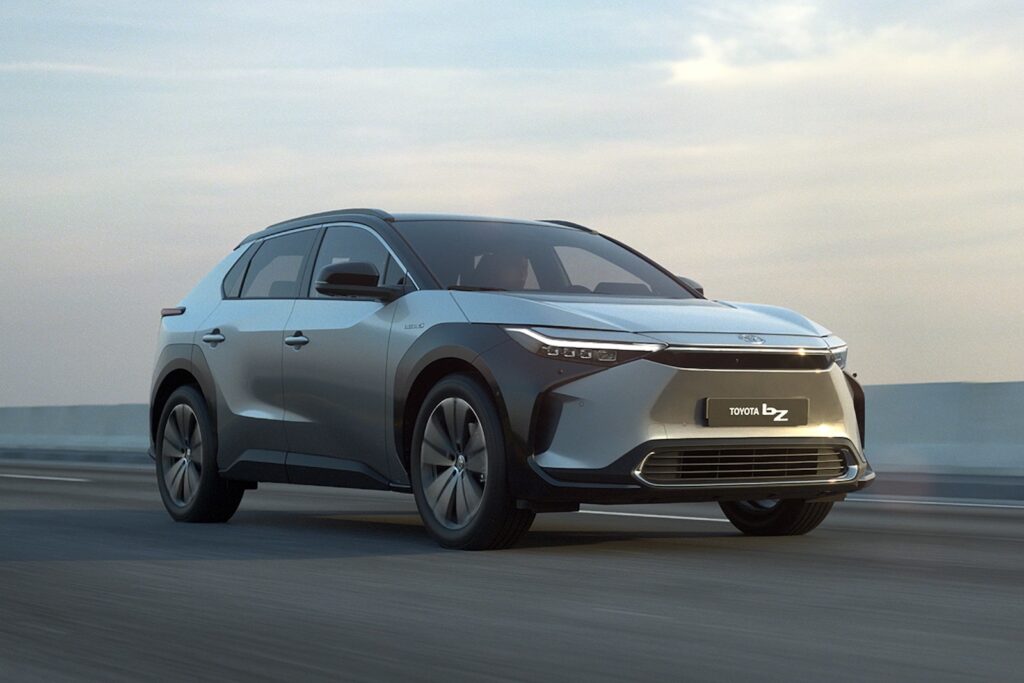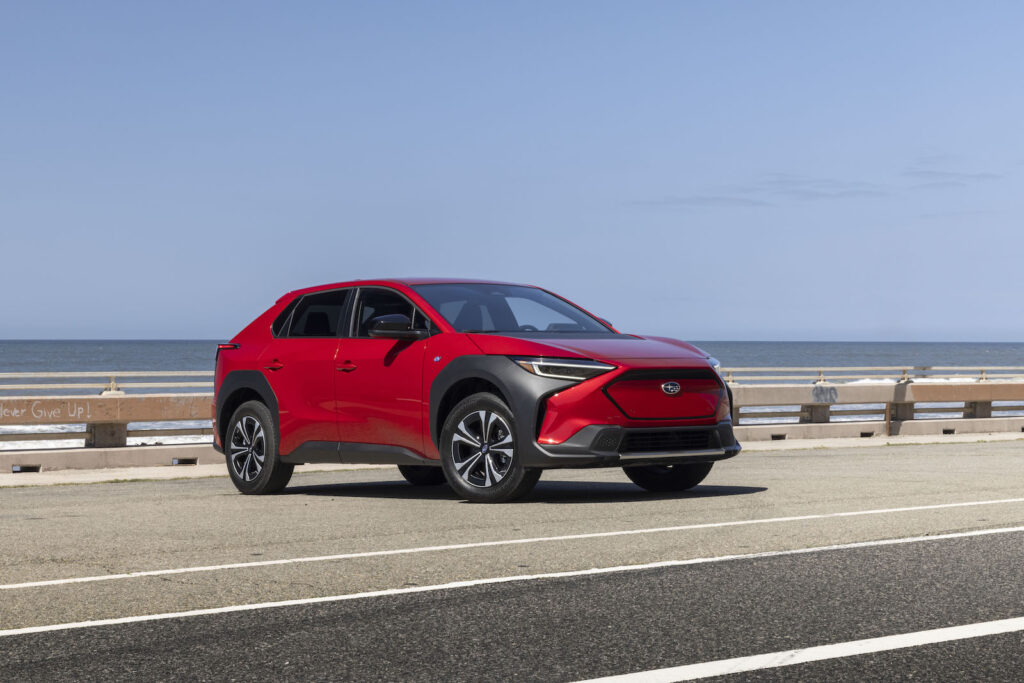Building an electric vehicle is difficult and producing them without issues is proving to be even more difficult. Toyota recalled 2,700 of its new bZ4X all-electric crossovers due an issue with the model’s wheels.

The company revealed in a report to the Japanese transportation ministry the vehicles, which said sharp turns and harsh braking may cause a hub bolt to loosen. This increases the possibility of the wheel coming off the vehicle.
Subaru, which jointly developed the vehicle with Toyota, conducted a similar measure with its Solterra crossover, accounting for about 2,600 vehicles globally. In the case of Toyota, 2,200 of the affected vehicles are in Europe and just 260 in the U.S. No Subaru vehicles made it to the U.S.
Drivers have been advised to park the vehicles while a solution is developed, Reuters reported.
“We sincerely apologise for any inconvenience this causes you,” Toyota said on its website. “We would have repaired it as soon as possible, but we are investigating the details.”
Not alone with issues
While Toyota and Subaru officials are likely displeased with having to issue a recall so early in the lives of their new EVs, the companies are far from alone with new EVs facing issues.

Just last week, Ford announced a recall and stop/sale of 49,000 Mustang Mach-E electric vehicles that could lose power due to a part overheating when the vehicle is subjected to several “wide-open pedal events.”
The loss of power means no propulsion which could cause a crash. This is the fifth recall on the company’s top-selling electric vehicle, and accounts for nearly half of the Mach-E EVs built.
Ford recalled nearly 40,000 Mach-Es last fall due to improperly bonded windshields and panoramic glass roofs that could come loose while driving. Ford was first made aware of the problem when it received reports of a cracked windshield and problems with the urethane used to seal the glass in place.
It has faced additional problems including a software glitch that led to “bricking” by some early models. Some vehicles had their 12-volt batteries drain while charging the SUV’s high-voltage lithium-ion pack. As a result, they would enter a “deep sleep” mode.
Tesla struggles too
One might think since Tesla’s produced more battery-electric models than any company, it would have resolved any issues, but not so.

The company recalled approximately 48,000 Model 3 Performance vehicles from the 2018 through 2022 model year in the United States and 14,684 cars in China in late April.
The action is because they may not display the speedometer while in “Track Mode,” according to documents released Friday. This does not meet federal motor vehicle safety standards, according to the National Highway Traffic Safety Administration.
The increasing number of recalls is a result of increasing pressure from NHTSA. With 10 recalls affecting 2.1 million vehicles in 2022, only Ford Motor Co. issued more. But considering the two company’s difference in annual volume, Ford sold 21.9 million vehicles in 2021 while Tesla sold 313,400 during the same period, the number of recalls per Tesla is high.
In February, Tesla recalled more than 578,000 vehicles because its Boombox function may “obscure” the vehicle’s Pedestrian Warning System sounds. That same month Tesla recalled Models S, X, 3 and Y models, 817,143 vehicles, to fix the seat belt reminder chimes that didn’t alert drivers that were not buckled up. Another recall during February affected nearly 54,000 vehicles equipped with the company’s full self-driving technology, which didn’t come to a complete stop at four-way intersections.







